detail profile franz nicklisch
Peran Yang Di Mainkan Franz Nicklisch
 Kurt Hoffmanns film adaptation of Tucholskys...
Kurt Hoffmanns film adaptation of Tucholskys...Rheinsberg 1967
Kurt Hoffmann's film adaptation of Tucholsky's eponymous novella is situated in 1910s Berlin: The aspiring editor Wolf runs into Claire by chance. Both are attracted to one another, yet they are not entirely certain about their feelings. They embark on a trip to Rheinsberg to assure themselves about their sentiments. And indeed, the time spent in the romantic provincial town brings clarity to their situation.
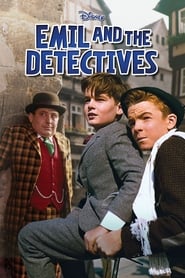 When Emil travels by bus to...
When Emil travels by bus to...Emil and the Detectives 1964
When Emil travels by bus to Berlin to visit his family, his money is stolen by a crook who specializes in digging tunnels. While following the thief, Emil runs into Gustav, a young boy who gathers up all his friends to help Emil find the money. However, they get into more trouble than they bargained for when Emil's pickpocket turns out to be mixed up with a couple of notorious bank robbers.
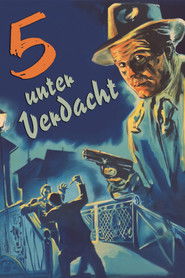 In the Danish port city of...
In the Danish port city of...City in the Fog 1950
In the Danish port city of Belgesund, the caretaker of a private high school has fallen victim to murder. Detective Thomsen takes on the case and finds that behind the clean facade there are abysses. He has five suspects in mind: the teacher Berling, who is having a relationship with a student, the twin brother and sole heir of the murdered man, the murdered man's shady roommate, the primary school teacher Klaus Erikson and his brother Jakob.
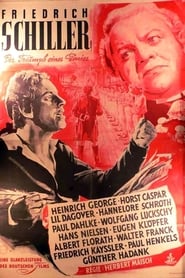 The young Schiller whose heart and...
The young Schiller whose heart and...Friedrich Schiller – The Triumph of a Genius 1940
The young Schiller, whose heart and soul are writing and poetry, is forced into the military academy (the pride and joy of the Duke of Württemberg). Schiller is disgusted by the everyday routine of the military, always back and forth between breeding and drills. Conversation, conflict or even critique are discouraged – the oppression insufferable for the young rebel. Disgusted by the brutality, he writes his drama "The Bandit", which he would later publish anonymously. But following a frank conversation with the Duke, Schiller is dishonored and must leave the land.
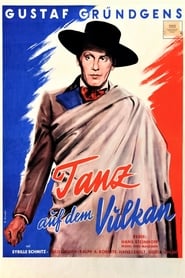 Paris 1830 JeanGaspard Debureau performs on the...
Paris 1830 JeanGaspard Debureau performs on the...Tanz auf dem Vulkan 1938
Paris, 1830: Jean-Gaspard Debureau performs on the stage and delights his audience with song, wit and charm. He is, however, very unpopular with King Charles X, who is the target of much of Debureau's scornful jests. That would be a somewhat tolerable situation if it weren't for the fact that Debureau has fallen for a countess, who happens to be the King's mistress.
 Jozis aunt runs an inn near...
Jozis aunt runs an inn near...The Unsuspecting Angel 1936
Jozi's aunt runs an inn near the border and has a little side-job: she smuggles. Poor, naive Jozi doesn't know anything about it. Jozi falls in love with the young border patrol officer Hans and her feelings are amply returned. But Hans' supervisor suspects Jozi of smuggling and tries again and again to lead her into illegal temptation. Finally, Hans sees Jozi in a dance bar together with smugglers and believes, too, that she's one of their accomplices.
 Released three days after Adolf Hitler...
Released three days after Adolf Hitler...Dawn 1933
Released three days after Adolf Hitler became Reichskanzler, it was the first film to have its screening in Nazi Germany. It became a symbol of the new times touted by the Nazi regime. The title (literally "morning-red") is the German term for the reddish coloring of the east sky about a half hour before the sunrise. On patrol Captain Liers and his submarine crew sink an important British ship, but while returning to harbour, they're lured into a trap by a British vessel disguised as a neutral Danish one. They sink it after it attacks them without warning, but while they prepare to rescue survivors, a British destroyer sinks the sub. On the sea bed 60 feet down, with all but the bridge flooded, the 10 surviving crew have only 8 rescue devices. Liers orders the crew to use them, but they disobey - either all escape or nobody does.


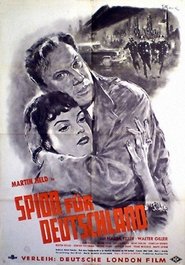 The true story of a German...
The true story of a German...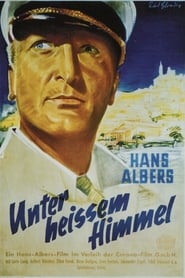
 A richspoiled young man learns about...
A richspoiled young man learns about...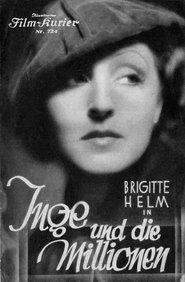 A well scripted and captivating thriller...
A well scripted and captivating thriller... Vienna glovesaleslady Christel falls in love...
Vienna glovesaleslady Christel falls in love...